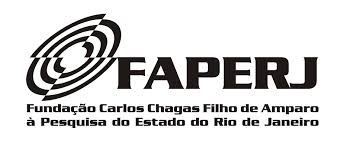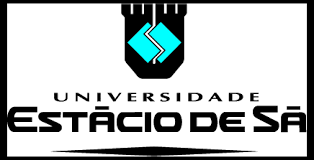| ePOSTER | ||
| Theme: 8AA Communication skills |

|
| Abstract Title | ||
| Literature and Medicine- a teaching experience | ||

|
Authors: |
Silvana Ferreira - Psychiatry and Medical Psychology- silvanaatf@gmail.com Ana Luisa Mallet - Internal Medicine Aurora Barros - Literature Luciana Andrade - Biophysics Luiz Vaz - Performing Arts Sylvia Porto - Pediatrics |
Institutions: | UNESA - Estácio de Sá University - Medical School - Campus Arcos da Lapa - Rio de Janeiro, Brazil |
Nowadays, there seems to be an abyss of mutual misunderstanding between physicians and their patients. Since last century, Medicine has undergone impressive technical progress, however, doctors seem to lack the human capacity to communicate with their patients, and skills in listening and understanding are, no doubt, the weak spot of current clinical practice (1, 2).
In order to help students acquire those skills, literature has been described as a useful tool (1, 3). Teaching medical students to analyse literary narratives is a way to prepare them to cope with medical narratives and professional practice. Narrative skills enhance empathy and a Medicine practiced with narrative competence leads to more humane, ethical and effective care (1,3,4,5). In Brazil, a multicultural country, the competence to listen and understand diferent illness narratives is a very important goal in medical education (6).

We developed a project called "Medicine and Art - Literature and Medical Narratives", which aim was to promote narrative and communication skills through the discussion of literary texts.
From march, 2013, every two weeks, teachers and students met to think over and discuss on topics of previously selected books: Every patient tells a story, L.Sanders; The death of Ivan Ilitch, L.Tolstoi; Ward number 6, A.Tchekhov; The Alienist, M. Assis; An anthropologist on Mars, O. Sacks and Neonatology Beyond Neonatal ICU, S. Porto.
During the meetings the students also experienced drama exercises under the orientation of a drama teacher and had the opportunity to act, participate in games and promote shadow theatre presentations. Two months later the students were invited to write their own texts as homework, with the support of a literature teacher. The four major themes proposed were (a) their impressions about the books they had read, (b) narratives about their patients, (c) narratives about themselves, and (d) free theme or book/film review.

The students’ texts gave birth to a book. The launch of “Literature and medicine–a teaching experience” happened in september, 2014.
Also, it was written a script for a documentary film, based on the story of Arthur, a premature baby, and his family, which is in Neonatology Beyond Neonatal ICU, Porto S.
The students reported that they felt more confident to talk with their patients and more sure that "everything they said was important for medical practice". Also, they remarked that their writing skills had improved, as well as their ability to express themselves. They had enjoyed the meetings (fact that could be evinced by their regular participation in the meetings and adherence to home tasks) and, later on, looked very fullfilled and proud of themselves on the launch of the book.
It was created a cultural space in our medical school. From the beggining of 2015 the project "Medicine and Art" is working with "Cinema and Medicine".
The project "Medicine and Art - Literature and Medical Narratives" was subject of an article on FAPERJ online Bulletin, Ano IX, nr. 476, mar/apr 2014 and on Rio Pesquisa Review, sep 2014(:38-40).

Assessing the aquisition of narrative skills is a complex task. Anyhow, the reading and discussion of literary texts contributed to enhance the students' perception about their communication skills and critical understanding of individual disease processes, therefore contributing to their narrative skills.
In addition, the supplementary reading activity, drama exercises and writing texts under suppervision enlarged students’ general knowledge, helped them to cope with shyness and enhanced their self-esteem and self-assurance towards professional needs.
Helping students to develop narrative skills is an important goal in medical education and, in this issue, literature is an efficient and enjoyable tool.
- To our dear students, for their partnership in this project:
Alcenir Alves Júnior, Amanda Martins, Bárbara Mançor, Claudia Miranda, Daniel Cohen, Gabriela Carvalho, Guilherme Lambert e Silva, Larissa Santos, Loïse Faber, Lucas Najar, Luciana Matoso, Mariana Brêttas, Mariana Nery, Rodolfo Lopes Silva.
To FAPERJ, for the support given.



- CHARON, Rita - Narrative Medicine: honoring the stories of illness. Oxford: Oxford University Press, 2006
- GREENHALGH, Trisha ; HURWITZ, Brian - Why study narrative? . BMJ Jan 2, 1999; vol 318 (7175) :48.
- SCLIAR, Moacyr - Literature and Medicine: a shared territory . Cad. Saúde Pública, jan-mar 2001; Rio de Janeiro, 16(1): 245.
- CHARON, Rita - Narrative Medicine: a model for empathy, reflexion, profession and trust. JAMA 2001; vol 286 (15): 1897.
- GREENHALGH, Trisha - Narrative based Medicine en an evidence based world. BMJ Jan 30,1999; vol 318 (7179) :323.
- FAVORETO, Cesar A.O. and CAMARGO Jr, Kenneth R. - Narrative as a tool for development of clinical practice. Interface - Comunic. Saúde, Educ. , apr-jun 2011, vol 15(37) :473.
 Send Email
Send Email